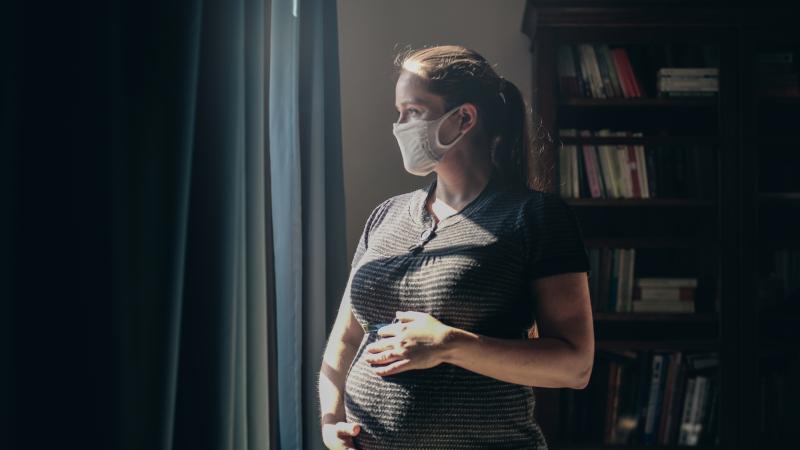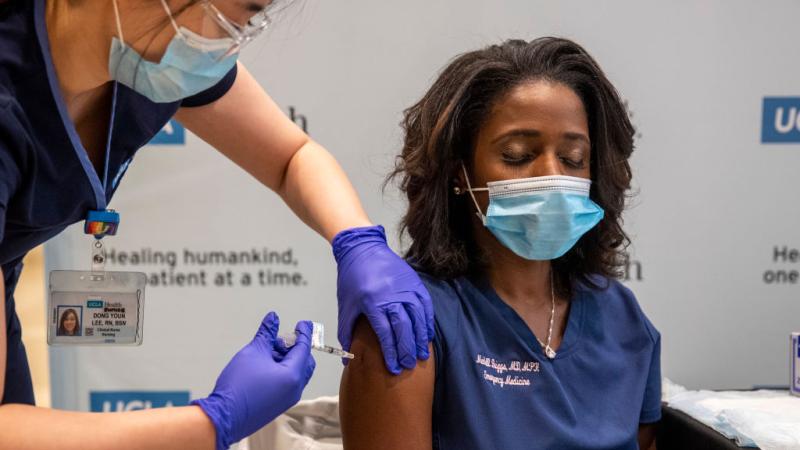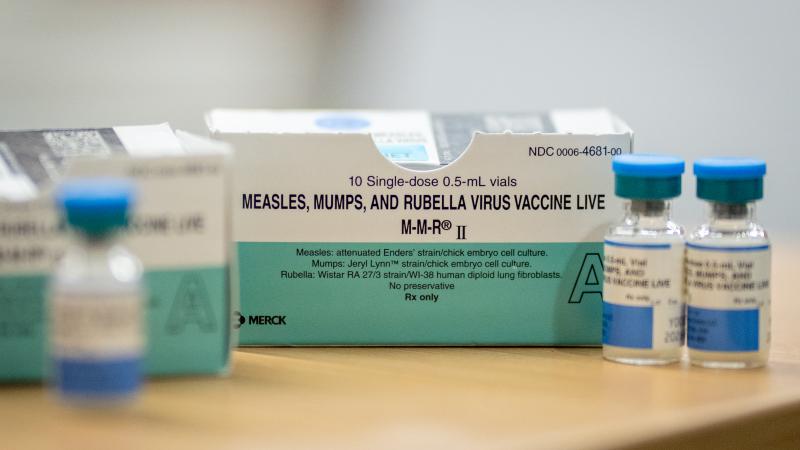Multiple journals reject major mask study amid hints that it shows masks don't stop COVID
Results will be published "as soon as a journal is brave enough," researcher says.
A major study out of Denmark that sought to examine the efficacy of face masks at limiting the spread of COVID-19 has reportedly been rejected by multiple academic journals amid hints that the study found face coverings are not effective in protecting individuals from the coronavirus.
Masks have been among the most persistent and controversial flashpoints of the COVID-19 epidemic for months. Health officials around the world initially argued strongly against their use, claiming that studies over the years had demonstrated that masks were ineffective at stopping respiratory viruses and unnecessary for the current pandemic.
Dr. Anthony Fauci, for example, told CBS' "60 Minutes" in March: "Right now, in the United States, people should not be walking around with masks."
Growing concerns over a purportedly high rate of asymptomatic spread of COVID-19 led many of those same officials, including Fauci, to reverse their recommendations, urging people to wear masks whenever they go out in public.
Reflecting the new public sentiment on masks, the Centers for Disease Control and Prevention urges Americans to "wear masks in public settings, like on public and mass transportation, at events and gatherings, and anywhere they will be around other people."
Mandates by governors and national leaders over the past several months have further enforced those conclusions, with many public leaders issuing orders for citizens to don face coverings while in grocery stores, on public transport, and even in open outdoor areas such as public parks.
Danish study has reportedly been ready for months
In spite of their now-ubiquitous presence in most of the Western world today, relatively little evidence exists to support widespread use of face-masking to prevent the spread of respiratory disease. A 2019 World Health Organization review of pandemic mitigation measures, for instance, found "no evidence" that face coverings helped to stop the spread of influenza.
Whether or not studies on influenza transmission can apply to COVID-19 is unknown; the disease's relatively recent emergence means that scientific studies on it are in short supply. Studies can take many month to secure funding, develop methodologies, carry out experiments, interpret the findings, write a research paper and get it peer-reviewed and published.
To bridge that gap, a team of Danish scientists earlier this year sought to carry out a major randomized controlled trial study to determine how effective masks might be at stopping COVID transmission. The study, begun in April, involved around 6,000 Danish citizens, half of whom wore face coverings during "normal behavior" and the other half of whom went without them.
The study concluded in June. Yet the Copenhagen newspaper Berlingske reported this week that it has been rejected by at least three elite medical journals so far — the Lancet, the New England Journal of Medicine, and JAMA, the Journal of the American Medical Association.
"They all said no," Christian Torp-Pederson, one of the study's researchers, told the Danish newspaper this week. He added that the study's scientists "cannot start discussing what [the journals] are dissatisfied with, because in that case we must also explain what the study showed, and we do not want to discuss that until it is published."
Study will be published 'as soon as a journal is brave enough'
The paper's lack of publication thus far is not, on its face, unheard of. Peer review — the process by which independent experts analyze, criticize and edit scientific papers prior to publication in official journals — can take several months or more from start to finish.
Yet there have been indications that the study may be ruffling feathers among medical officials and researchers, with some of the study's directors suggesting, cryptically, that its results may run against the grain of current public orthodoxy on mask usage.
Responding to a query last week about when the study will be published, one of its researchers — University of Copenhagen infectious disease Professor Thomas Benfield — replied: "As soon as a journal is brave enough to accept the paper."
Benfield in a later interview with Berlingske warned against taking that quote "out of context," stating: "The article is being reviewed by a respected journal."
Benfield confirmed to Just the News that the study "is going through peer review," and he called the process "not unusual."
Another one of the study's authors, Christian Torp-Pedersen, told the Copenhagen newspaper that he "might also have dared to go as far as Benfield" regarding Benfield's response. Asked by the paper if the study's results could be considered "controversial," he said: "That's how I want to interpret it."
Questioned by the paper further on whether or not the study might demonstrate "no significant effect of mask use," he replied: "I think that's a very relevant question you are asking."
Another one of the study's authors, Henrik Ullum, wrote on Twitter this week that the study's researchers are "very unhappy about the delay of our study."
"We never anticipated this delay," he continued, adding: "The peer review process is important to secure correct scientific conclusions for this sensitive research question."
Supporters say masks can save tens of thousands of lives
Neither Torp-Pedersen nor Ullum responded to queries from Just the News about the study and its delay. None of the three journals that allegedly rejected it, meanwhile, were willing to comment on the matter either.
Lancet spokeswoman Jessica Kleyn told Just the News that the journal "does not comment on papers it has not published."
NEJM spokeswoman Julia Morin responded that the journal's publication process "is confidential, and we cannot confirm or deny anything about any manuscripts not published in NEJM."
JAMA did not respond to queries.
Last month, several academics out of Harvard, Stanford and George Washington University published a letter critical of the Danish study's methodology. Providing what might be interpreted as further evidence that the study's results challenge the efficacy of masking, these critics argued that inherent design flaws in the study — including possible noncompliance factors within both the control and study groups — could unfairly skew the results in favor of non-mask usage.
The study "poses a serious risk of mistranslation" due to concerns that "null or too-small effects will be misinterpreted to mean that masks are ineffective," the writers stated. The academics warned policy-makers against "interpreting the results of this trial as being anything other than artifacts of weak design."
Proponents of masks have argued that widespread usage of face coverings will significantly reduce COVID-19 caseloads and death tolls. The University of Washington's Institute for Health Metrics and Evaluation said in a paper published this week that "universal mask use" could prevent an additional 129,574 deaths throughout the United States by February.
Conversely, numerous countries across the world that have mandated the use of face masks in public have recently seen infection rates soar. Both Germany and Spain, for instance, have had mask mandates in place for months, yet both countries have seen recent sharp resurgences in new COVID-19 cases over the last several weeks.
















